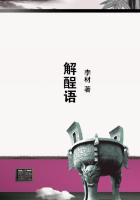"Have arranged to leave for Tampa with you Monday, at midnight"it read. "Call for me at ten o'clock same evening.--STANTON."Arkwright read the message three times. There was a heavy, suffocating pressure at his heart as though it had ceased beating. He sank back limply upon the edge of his bed and clutching the piece of paper in his two hands spoke the words aloud triumphantly as though to assure himself that they were true. Then a flood of unspeakable relief, of happiness and gratitude, swept over him, and he turned and slipped to the floor, burying his face in the pillow, and wept out his thanks upon his knees.
A man so deeply immersed in public affairs as was Stanton and with such a multiplicity of personal interests, could not prepare to absent himself for a month without his intention becoming known, and on the day when he was to start for Tampa the morning newspapers proclaimed the fact that he was about to visit Cuba.
They gave to his mission all the importance and display that Arkwright had foretold. Some of the newspapers stated that he was going as a special commissioner of the President to study and report; others that he was acting in behalf of the Cuban legation in Washington and had plenipotentiary powers. Opposition organs suggested that he was acting in the interests of the sugar trust, and his own particular organ declared that it was his intention to free Cuba at the risk of his own *******, safety, and even life.
The Spanish minister in Washington sent a cable for publication to Madrid, stating that a distinguished American statesman was about to visit Cuba, to investigate, and, later, to deny the truth of the disgraceful libels published concerning the Spanish officials on the island by the papers of the United States. At the same time he cabled in cipher to the captain-general in Havana to see that the distinguished statesman was closely spied upon from the moment of his arrival until his departure, and to place on the "suspect" list all Americans and Cubans who ventured to give him any information.
The afternoon papers enlarged on the importance of the visit and on the good that would surely come of it. They told that Senator Stanton had refused to be interviewed or to disclose the object of his journey. But it was enough, they said, that some one in authority was at last to seek out the truth, and added that no one would be listened to with greater respect than would the Southern senator. On this all the editorial writers were agreed.
The day passed drearily for Arkwright. Early in the morning he packed his valise and paid his landlord, and for the remainder of the day walked the streets or sat in the hotel corridor waiting impatiently for each fresh edition of the papers. In them he read the signs of the great upheaval of popular feeling that was to restore peace and health and plenty to the island for which he had given his last three years of energy and life.
He was trembling with excitement, as well as with the cold, when at ten o'clock precisely he stood at Senator Stanton's door. He had forgotten to eat his dinner, and the warmth of the dimly lit hall and the odor of rich food which was wafted from an inner room touched his senses with tantalizing comfort.
"The senator says you are to come this way, sir," the servant directed. He took Arkwright's valise from his hand and parted the heavy curtains that hid the dining-room, and Arkwright stepped in between them and then stopped in some embarrassment.
He found himself in the presence of a number of gentlemen seated at a long dinner-table, who turned their heads as he entered and peered at him through the smoke that floated in light layers above the white cloth. The dinner had been served, but the senator's guests still sat with their chairs pushed back from a table lighted by candles under yellow shades, and covered with beautiful flowers and with bottles of varied sizes in stands of quaint and intricate design. Senator Stanton's tall figure showed dimly through the smoke, and his deep voice hailed Arkwright cheerily from the farther end of the room. "This way, Mr. Arkwright," he said. "I have a chair waiting for you here."He grasped Arkwright's hand warmly and pulled him into the vacant place at his side. An elderly gentleman on Arkwright's other side moved to make more room for him and shoved a liqueur glass toward him with a friendly nod and pointed at an open box of cigars. He was a fine-looking man, and Arkwright noticed that he was regarding him with a glance of the keenest interest. All of those at the table were men of twice Arkwright's age, except Livingstone, whom he recognized and who nodded to him pleasantly and at the same time gave an order to a servant, pointing at Arkwright as he did so. Some of the gentlemen wore their business suits, and one opposite Arkwright was still in his overcoat, and held his hat in his hand. These latter seemed to have arrived after the dinner had begun, for they formed a second line back of those who had places at the table; they all seemed to know one another and were talking with much vivacity and interest.
Stanton did not attempt to introduce Arkwright to his guests individually, but said: "Gentlemen, this is Mr. Arkwright, of whom I have been telling you, the young gentleman who has done such magnificent work for the cause of Cuba." Those who caught Arkwright's eye nodded to him, and others raised their glasses at him, but with a smile that he could not understand. It was as though they all knew something concerning him of which he was ignorant. He noted that the faces of some were strangely familiar, and he decided that he must have seen their portraits in the public prints. After he had introduced Arkwright, the senator drew his chair slightly away from him and turned in what seemed embarrassment to the man on his other side. The elderly gentleman next to Arkwright filled his glass, a servant placed a small cup of coffee at his elbow, and he lit a cigar and looked about him.















